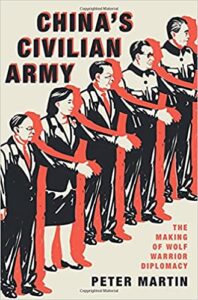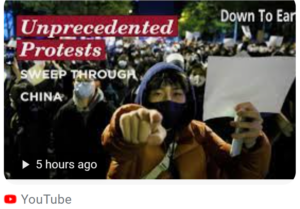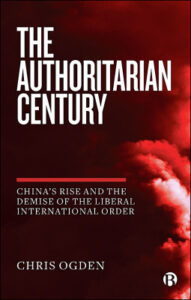Last Saturday, just hours after Xi Jinping sipped tea with Emmanuel Macron while calling for peace in Ukraine, fighter jets flew across the Taiwan Strait in a display of Chinese military might, the BBC reports. The jarring juxtaposition was the latest example of the two faces China has presented to the world – a dovish international peacemaker, and an attack dog baring its teeth to defend what it sees as its territory.
“Mr Xi knows that you can’t rejuvenate a Chinese nation without a good economy,” says Neil Thomas, a fellow in Chinese politics at the Asia Society Policy Institute.
 “China needs to keep growing while it acquires diplomatic influence,” he adds. “You can’t do that if you alienate the West, you still need to maintain good economic relations. That requires diplomacy, and stepping back from more ‘Wolf Warrior’ aspects.”
“China needs to keep growing while it acquires diplomatic influence,” he adds. “You can’t do that if you alienate the West, you still need to maintain good economic relations. That requires diplomacy, and stepping back from more ‘Wolf Warrior’ aspects.”
Dictators enjoy many pleasures, not least the obsequiousness of yes-men and -women lauding the leader’s greatness. But it has its downside too, as China’s No. 1 Xi Jinping is discovering, notes Elisabeth Braw, a senior fellow at the American Enterprise Institute (AEI) and the author of ‘The Defender’s Dilemma: Identifying and Deterring Gray-Zone Aggression’. According to the commander of the US Navy’s Office of Naval Intelligence, the Chinese ruler isn’t aware of all the gray zone operations his country conducts against its neighbors and rivals like the US
“We have strong indications that Xi Jinping — and I’m an intelligence guy — Xi Jinping is not aware of everything his security forces are doing,” Rear Admiral Mike Studeman, commander of the Office of Naval Intelligence, told a conference in early April, she writes for CEPA. “We think it’s a function of the unwieldiness of China’s governance model. There are dangers of dictatorships.”
In October 2022, Peng Lifa unfurled two political banners in central Beijing (above) calling on the Chinese government to put an end to the country’s restrictive zero-COVID policy and one-party authoritarianism, notes dissident artist Ai Wei Wei.
 Protests erupted throughout China using blank sheets of A4 paper as a symbol of dissent. As of today, Peng Lifa and many of the protesters involved have been detained or have disappeared from public view, he writes for TIME magazine:
Protests erupted throughout China using blank sheets of A4 paper as a symbol of dissent. As of today, Peng Lifa and many of the protesters involved have been detained or have disappeared from public view, he writes for TIME magazine:
Their personal courage and resistance under authoritarian rule represent a pivotal moment that must be remembered by history. It is only with such resistance that people may keep the flame of belief in truth and justice burning in their hearts. In the current era, the qualities of free expression and resistance, which come at a price, are exceedingly rare to find. Unfortunately, in most cases, what we consider to be expression lacks meaning. The true meaning of expression emerges only when individuals like Peng Lifa are willing to make sacrifices and pay the price.
 China’s new world order is taking shape, The Post adds: Xi has touted a number of other new initiatives over “security” and “civilization” — still vague policy positions essentially challenging the architecture of the U.S.-led order, as well as the concept of universal values.
China’s new world order is taking shape, The Post adds: Xi has touted a number of other new initiatives over “security” and “civilization” — still vague policy positions essentially challenging the architecture of the U.S.-led order, as well as the concept of universal values.
“It appears to be a counterargument to [President] Biden’s autocracy versus democracy narrative,” Moritz Rudolf, a research scholar at Yale Law School’s Paul Tsai China Center, told the Financial Times. “It’s an ideological battle that’s more attractive to developing countries than people in Washington might believe.”







